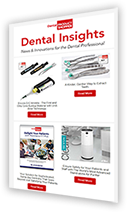I graduated from dental school in 2000. I went to an in-state program and got a great education at a great value. The average dental school graduate at that time had a debt of $118,515, per the American Dental Education Association (ADEA). It was not uncommon to find a solo practice for sale and a dentist willing to “take you under their wing” and help you be successful. You would run an ad in the local newspaper announcing your associateship or new ownership, get a sign with your name on it, and away you went! There was not a lot going on in the digital world, and if you had a dental chair, handpieces, some dental supplies, an x-ray and some film, along with helpful staff, you could besuccessful.
Well, fast-forward to 2017 and the world is changing at a record pace. Dentistry is no different. The challenges for dentists are changing and the recent graduates are entering the profession during times like we have never seen in the past. Per the ADEA, average debt for a graduate with the class of 2016 is $261,149—more than twice what it was when I graduated. In addition, the economy went through major changes in the mid 2000s, and its impact on dentistry has been far reaching. The average salary for the general practitioner peaked in 2005 and has since dropped significantly.
We’ve also seen technology become mainstream— having computers in every operatory, along with digital x-rays, dental software, paperless offices, premium websites and digital marketing, and a variety of the latest dental equipment and materials. Thus, it’s a lot more expensive than the days of x-ray film and paper charts. Add in changes like patients with less dental coverage, and dentistry is a lot tougher today than it was when I graduated 17 years ago.
So, what is one to do? Well, here are a few things to keep in mind for success:
• Have a team of professionals help you through your decision-making process: an accountant who understands dentistry; a financial consultant to help you make the best decisions for you and not what his or her company is selling; an attorney to help with legal decisions.
• You don’t have to have all the latest and greatest equipment to practice great dentistry. Get the essentials to start and slowly add things that will be helpful. Look at the ROI when you make decisions on new equipment. For instance, you don’t need a surgical handpiece and a ton of implants to start if you are only doing 1 or 2 every 6 months. Ask yourself: “Can I pay cash for it?” “How will this impact my practice and its overall efficiency each day?”
• Invest in yourself. Take CE and learn new procedures so you can perform dentistry quicker and better. This can have way more impact on your practice than a simple new dental chair or handpiece. Also, you will learn a lot from being around other great-minded dentists.
• Debt is a beast—once you get it, you must feed it first, whether you want to or not.
• Be clear on the goals you make in collaboration with other professionals on your team and live on less than you make.
Slow and steady, like the turtle, you’ll get there successfully.

Jeff Lineberry, DDS, graduated in 2000 from the University of North Carolina School of Dentistry. He is a fellow in the Academy of General Dentistry and the International Congress of Oral Implantologists; an Accredited Member of the American Academy of Cosmetic Dentistry; and a Visiting Faculty, Online Moderator, and Contributing Author for Spear Education. His dental practice is in Mooresville, NC.



